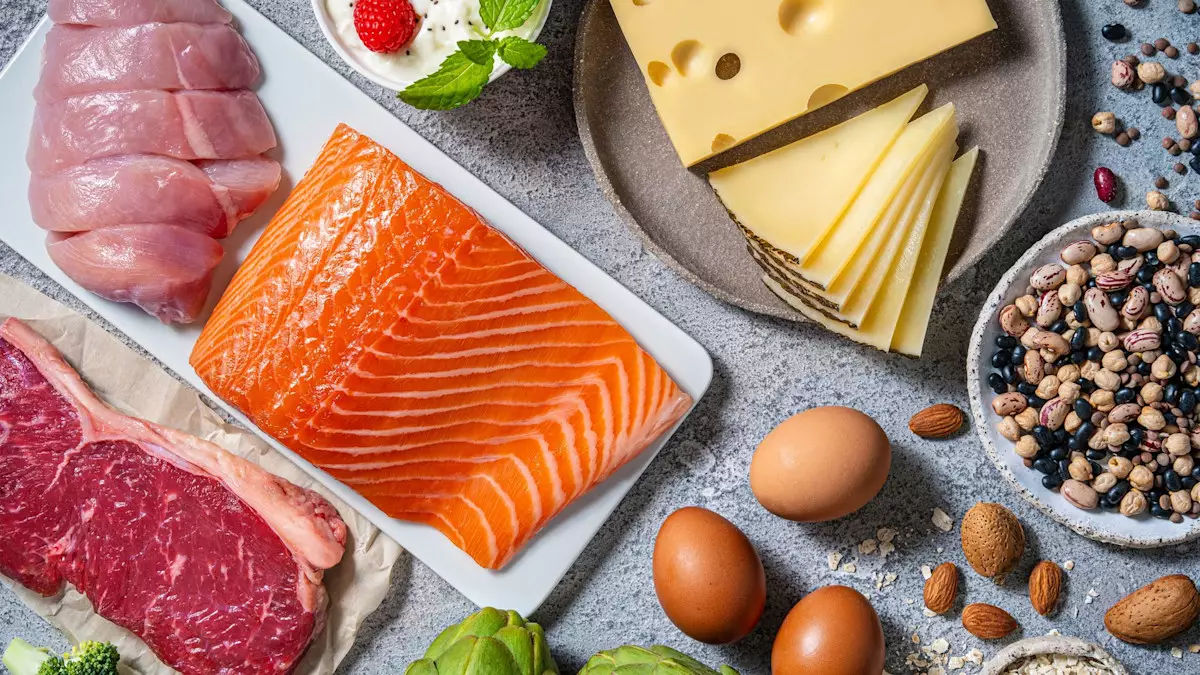When we think about nutrition, protein often gets categorized as food exclusively for athletes or those seeking to bulk up. This perception, however, dismisses the staggering truth: protein is the bedrock of our overall health. It goes beyond muscles—serving as a fundamental building block for our hair, skin, nails, and even crucial bodily functions like hormone regulation and immune response. Unfortunately, many individuals overlook its significance, especially women navigating hectic lifestyles or experimenting with the latest dietary trends.
Have you ever felt a sense of fatigue that lingers even after a full night’s sleep? Or perhaps you’ve experienced those uncomfortable cravings for quick-fix snacks in the mid-afternoon? More often than not, these signs might indicate a protein deficiency, an aspect of nutrition that rarely comes to mind but can significantly affect our everyday lives.
The Silent Cravings: Understanding Your Body’s Signals
Understanding the body’s communication is crucial for enhancing our health and well-being. If you’ve noticed that a meal leaves you feeling hungry less than an hour later, this could stem from an inadequate protein intake. Proteins are essential for promoting the release of hormones that trigger feelings of fullness, effectively regulating appetite. A diet deficient in protein may leave you cycling through cravings for sugary snacks or carbs, leading to an inevitable energy crash. Consider integrating protein-rich foods like beans, eggs, or lean meats into your meals to combat these dips in energy.
It’s also worth noting that muscle serves a critical purpose beyond aesthetics. Every day, our bodies rely on muscles for movement, balance, and metabolism support. Insufficient protein consumption results in muscle tissue breakdown, especially critical during weight loss periods. This can lead to diminished muscle mass, weakness, and reduced stamina, significantly impacting quality of life, especially for women over 40, who must prioritize their muscle integrity for long-term health.
Beauty and Beyond: The Effects of Protein on Appearance
Protein deficiency often leaves an indelible mark on our physical appearance. Noticing dull skin, thinning hair, or brittle nails? These could be early indicators that your protein intake isn’t what it should be. Our body’s ability to maintain healthy hair and skin relies heavily on proteins like keratin, collagen, and elastin. Without sufficient fuel, not only do these structures falter, but your overall aesthetic may decline as well. For many women, these unexpected changes in their appearance are misattributed to stress or aging when, in fact, they stem from a nutritional imbalance that can be rectified by merely adjusting one’s diet.
Weight fluctuations that coincide with rapid dietary changes can lead to more than just changes in appearance—they can also affect physical wellness. Feeling tenderness in the soles of your feet or palms of your hands? This localized discomfort might suggest that you are losing muscle or fat too quickly, potentially signaling a lack of adequate nutrition.
The Impact on Mental Health and Energy Levels
It’s crucial to recognize that protein extends its influence into our mental and emotional wellbeing. Proteins are vital in forming neurotransmitters like serotonin and dopamine, which help regulate our mood and focus. If you suffer from sudden mood changes or periods of low motivation, the underlying cause might rest in your dietary choices, particularly protein levels.
Feeling sluggish during the day despite adequate sleep? You could be predominantly consuming simple carbohydrates and caffeine while neglecting protein. This imbalance may induce unaffectionate cycles of energy peaks and valleys, making your day feel like an uphill battle. Switching to a more protein-enriched breakfast—think smoothies with protein powder or even a classic boiled egg—could be the game-changer you need.
Boost Your Immune System: The Critical Connection
The role of protein in strengthening our immune system is often underestimated. Proteins are necessary for the synthesis of antibodies and immune cells that play a fundamental role in defending the body against pathogens. A lack of sufficient protein can lead to increased susceptibility to infections or prolonged recovery times. If minor ailments tend to linger, consider reviewing your protein intake—adjusting your meals might bolster your body’s defenses.
When wounds heal slowly or bruises take longer to disappear, this could also signal that your nutritional needs, notably protein, are not being met. Protein aids tissue repair, and adjusting your intake can enhance recovery, especially after injuries or extensive physical activity.
The Road Ahead: Making Protein Count
While the typical recommendation is around 0.8 grams of protein per kilogram of body weight, many women—especially those who are active, pregnant, or recovering from illness—may benefit from higher amounts. Aim for at least 20 to 30 grams of protein per meal, sourcing it from a diverse array of options, including eggs, tofu, chicken, Greek yogurt, and legumes.
Aiming for balance is essential. Pair your protein intake with an assortment of colorful vegetables, healthy fats, and whole grains. This ensures that your meals are not only satisfying but also nourishing. If you’re starting to notice changes in your energy, mood, or overall wellbeing, check your plate; protein could be the missing piece of the puzzle that transforms your vitality. By tuning in to what your body is asking for, you can cultivate a more vibrant, energetic life.

